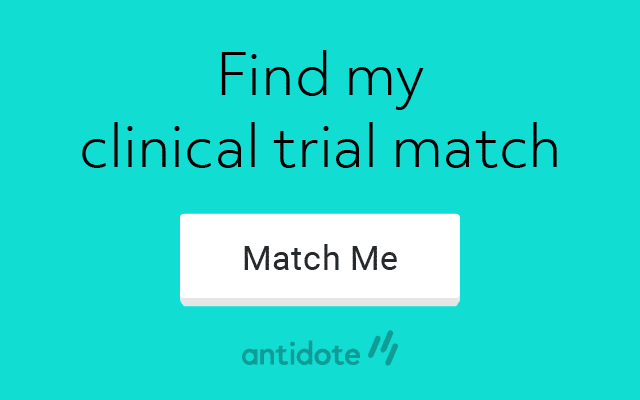Someone on a Facebook Chronic Kidney Disease Support Group Page asked how we can make others more aware of what CKD patients want. I’ve been tweeting (exchanging remarks on Twitter) with those who could answer this question just recently. How perfect was that?
 The first thing the American Society of Nephrology requested is that those of you who are familiar with Twitter, or are willing to become familiar with this social media, join the monthly #AskASN twitter chats. To join Twitter you simply go to Twitter.com and sign yourself up, no special expertise necessary. That pound sign, or as it’s commonly known now – hashtag, before the words signify that this is a person or group with a Twitter account. What comes after the hashtag is your handle, the name you choose for yourself. Mine is – naturally – #SlowItDownCKD. You can search for me on Twitter.
The first thing the American Society of Nephrology requested is that those of you who are familiar with Twitter, or are willing to become familiar with this social media, join the monthly #AskASN twitter chats. To join Twitter you simply go to Twitter.com and sign yourself up, no special expertise necessary. That pound sign, or as it’s commonly known now – hashtag, before the words signify that this is a person or group with a Twitter account. What comes after the hashtag is your handle, the name you choose for yourself. Mine is – naturally – #SlowItDownCKD. You can search for me on Twitter.
#AskASN is one of the hashtags of the American Society of Nephrology, the ASN which you’ve often seen me quote. Yes, they are respected. Yes, they are doctors. And, yes, they do want to know what we as kidney disease patients want them to know about our lives as their patients. Big hint: their next Twitter Chat will be in late July.
This year’s May 28th blog was about KidneyX, the same topic as June’s Twitter Chat. Here’s a little reminder of what KidneyX stands for:
“Principles
- Patient-Centered Ensure all product development is patient-centered
- Urgent Create a sense of urgency to meet the needs of people with kidney diseases
- Achievable Ground in scientifically-driven technology development
- Catalytic Reduce regulatory and financial risks to catalyze investment in kidney space
- Collaborative Foster multidisciplinary collaboration including innovators throughout science and technology, the business community, patients, care partners, and other stakeholders
- Additive Address barriers to innovation public/private sectors do not otherwise
- Sustainable Invest in a diverse portfolio to balance risk and sustain KidneyX”
Did you notice that first principle: patient-centered? Or the fifth one: collaborative? We are included in that; we’re the patients.![]()
IDEA Lab is one of the U.S. Department of Health and Human Services’ partners. This is how they define themselves:
“We test and validate solutions to solve challenging problems in the delivery of health and human services.”
And this is what they had to say during the KidneyX Twitter Chat:
“HHS IDEA LabVerified account @HHSIDEALabJun 19
Absolutely. Patients are innovators and we need to recognize that #askASN#KidneyX”
Patients. They want to hear from us, patients.
Before reproducing a small part of the @AskASN KidneyX Twitter Chat, I want to introduce the players.
Kevin J. Fowler (@gratefull080504) is a patient who has had a preemptive kidney transplant and is highly involved in the patient voice being heard.
Tejas Patel (@GenNextMD) is a nephrologist with a large social media presence who advocates “for halting the progression of ckd so no dialysis or transplant [is necessary].”
James Myers (@kidneystories) is a fairly recent transplant with a strong advocacy for transplant patients.
I’m me; you already know me.
Now, the excerpt:
Thank you @GenNextMD Me too! #AskASNhttps://twitter.com/GenNextMD/status/1009245134964318209 …
 Kevin J. Fowler added,
Kevin J. Fowler added,
- Tejas Patel @GenNextMD
Replying to @kidneystories
I am advocating for halting the progression of ckd so no dialysis or transplant #askasn #moonshot
Replying to @gratefull080504@GenNextMD
@GenNextMD That’s what those of us pre-dialysis want, too. The question is how do we do that? As a lay person, I’m at a loss here.
Replying to @Slowitdownckd@gratefull080504
Major undertaking by medical community, organizations (ASN, AAKP, NKF, RPA) and implementation of breakthrough therapies keeping patient central. Engaging all stakeholders will help prioritize what works for patients. Dialogue via formal & social media helps us understand better.
Replying to @GenNextMD@Slowitdownckd@gratefull080504
We recently had patient editorial in @CJASN by @gratefull080504 and interview https://www.kidneynews.org/kidney-news/features/patient-engagement … Lot of work needs to be done
I read the article. I think you should, too. Kevin makes the point that patient voices need to be heard and the nephrologist who was interviewed with him, Dr. Eleanor D. Lederer, agrees.
From reading my blog alone, you’re already familiar with the oft quoted American Society of Nephrology (ASN), American Association of Kidney Patients (AAKP) which was the subject of June 25th blog, and the National Kidney Foundation (NKF), a staple in the blog. But what is the RPA?
Let’s find out. It turns out that this is the Renal Physicians Association. Their website is at https://www.renalmd.org/. If you go there, you’ll notice four different choices. One of them is Advocacy. That’s the one I clicked. Keep in mind that this site is for physicians.
“Become An Advocate for Excellence in Nephrology Practice
It is not only your right but also your obligation to let elected officials and policy makers know how you feel about important issues. It is your responsibility to speak out on matters that affect you directly or no one else will. RPA has developed pathways to allow you to do this.
Recognizing that nephrologists and their practice teams have limited time, an easy way to get involved in federal advocacy is by joining the RPA Political Action Committee (PAC) and Nephrology Coverage Advocacy Program (NCAP).
Take Action Nationally!
RPA’s Legislative Action Center (LAC) facilitates the important communication between RPA members and their members of Congress as well as representatives in their state legislatures. The LAC allows RPA members to track the progress of and search for all current legislation being considered by Congress.”

Our doctors are being asked to speak with the government on our behalf. But how will they know what we want or need, you ask. Easy enough: you tell them when you see them. You have regular appointments; that’s when you can talk with them about legislation you feel is necessary.
I never knew how much my opinion is wanted. I never knew how much YOUR opinion is wanted. Now we all know, so how about speaking out, raising your voice, and advocating for yourself. It’s not that scary if you start by just speaking with your doctor. Although, I’ll be looking for you on ASN’s #askASN Twitter Chat in late July.
Until next week,
Keep living your life!



Leave a comment